Parthian disaster Mark Licinius Crass
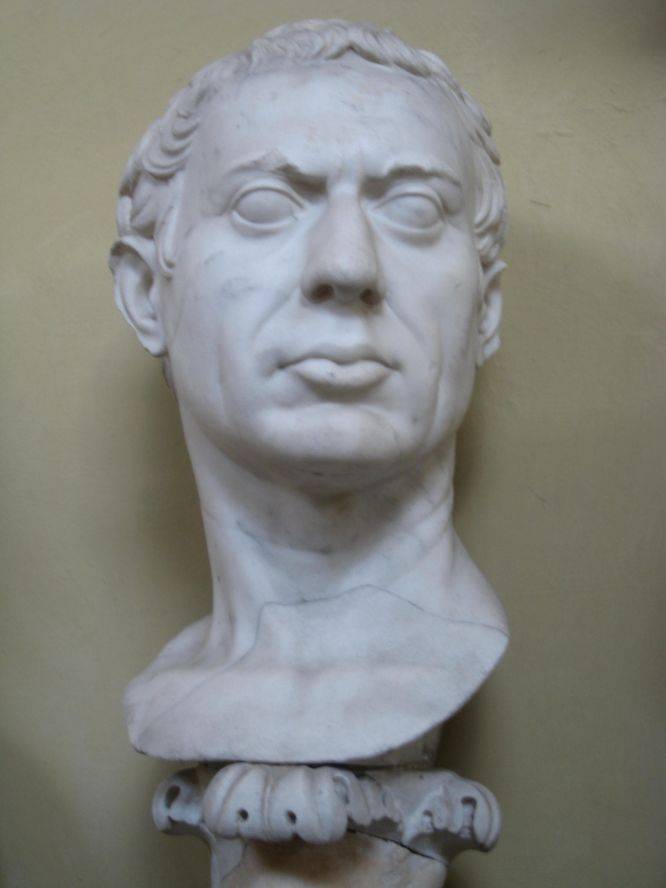
The plebeian clan Litsiniev, oddly enough, supported the aristocratic party, and in 87 BC Marc Crass's father, who at the time was performing the duties of a censor, and his elder brother died during the repressions unleashed by Marie. Mark himself was forced to flee to Spain, and then to Africa. It is not surprising that in 83 BC he ended up in Sulla’s army, and even at his own expense armed a squad of 2500 men. Crassus did not remain in the loser: after winning, buying up the property of repressed childbirth, he repeatedly increased his fortune, so that one day he could even afford to “invite” the Romans for lunch, setting up 10 000 tables for them. It was after this incident that he got his nickname - “Rich”. However, in Rome, he was not loved, not without reason considering it a greedy nouveau riche and dishonest usurer, ready to prey even on fires.
The nature of Crassus and his methods are well illustrated by the curious 73 trial of BC. Crassus was accused of attempting to seduce the messengers, which was considered a serious state crime, but he was acquitted after he proved that he was courting her only in order to buy the land belonging to her favorably. Even the undoubted merit of Crassus in suppressing the revolt of Spartacus practically did not change the attitude of the Romans. A significant part of the "laurels" for this victory he had to give the eternal rival - Pompey, who after the decisive battle managed to break one of the rebel detachments (as Pompey put it in a letter to the Senate, "pulled out the roots of the war"). Twice (in 70 and 55 BC) Crassus was elected consul, but in the end he had to share power over Rome with Pompey and Caesar. So in 60 g. BC. there was the first Triumvirate. A career for a lost father and a plebeian who barely escaped Marians was more than a good one, but Mark Crass passionately dreamed of Roman love, universal popularity, and military glory. It was this thirst for glory that pushed him into the fatal Parthian campaign, in which Republican Rome suffered one of the most painful defeats.
As already mentioned, in 55 BC Marc Crassus became consul the second time (the other consul that year was Gnei Pompey). According to custom, at the expiration of the consular powers, he was to receive in control one of the Roman provinces. Crassus chose Syria, and achieved for himself the "right of peace and war." He did not even wait for the expiration of his consulate, went to the East earlier: so great was his desire to become on a par with the great commanders of antiquity and even surpass them. For this it was necessary to conquer the Parthian kingdom - a state whose territory stretched from the Persian Gulf to the Caspian Sea, almost reaching out to the Black and Mediterranean Seas. But, if, with a small army, the Macedonian Alexander managed to crush Persia, why not repeat his march to the Roman plebeian Mark Crassus?
About the possibility of defeat Crassus did not even think, however, very few people then in Rome doubted that Parthia would fall under the blows of the legions of the Republic. The war with the Gauls, which led Caesar, was considered more serious and dangerous. Meanwhile, back in 69 BC Parthia helped Rome in the war against Armenia, but the Romans saw this country, not as a strategic ally in the region, but as an object of their future aggression. In 64 BC Pompey invaded Northern Mesopotamia, and in Parthia, in Parthia, a civil war broke out between the claimants to the throne - brothers Orod and Mithridates. The latter, in 58, recklessly turned to the former proconsul of Syria, Gabini, for help, so the moment for the commencement of the Roman invasion seemed ideal.
Together with the post Crassus got two selected legions of veterans who served under Pompeii, under his command they fought not only in Mesopotamia, but also in Judea and Egypt. Another two or three legions scored Gabinius especially for the war with Parthia. Crassus brought two legions to Syria from Italy. In addition, he scored a certain number of soldiers in other areas - on the way.
So, the brothers Mithridates and Orod didn’t live, but to death they clashed with each other, and the anticipating triumph (which was denied to him after the victory over Spartak’s army) Crassus hurried with all his might. His ally Mithridates in the summer of AD 55. He captured Seleucia and Babylon, but in the following year he began to suffer defeat after defeat. In 54 BC Crassus finally reached Parfia, and with little or no resistance occupied a number of cities in Northern Mesopotamia. After an insignificant battle near the city of Ihna and the storming of Zenodotiya, rejoicing at such a successful and easy for them campaign, the soldiers even proclaimed their commander as emperor. Until Seleucia, in which Mithridates was now, remained to go about 200 km, but the Parthian commander Suren was ahead of Crassus. Seleucia was taken by storm, the rebellious prince was captured and sentenced to death, his army went over to the side of Oroda who remained the only king.
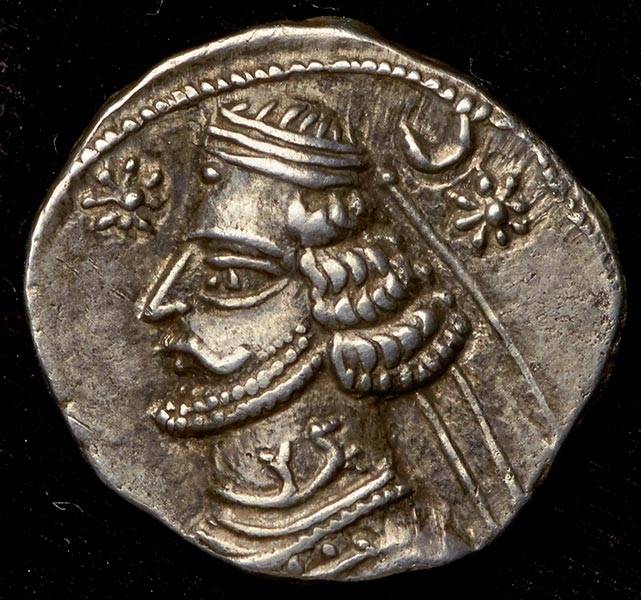
Nadezhda Crassus on the post-war weakness and instability of the authorities did not materialize, and he had to cancel the march to the south, and then completely withdraw his army to Syria, leaving garrisons in large cities (7 of thousands of legionnaires and a thousand cavalry warriors). The fact is that the plan of the military campaign of this year was based on joint actions with the army of the Parthian ally Mithridates. Now it became clear that the war with Parthia would be longer and more difficult than expected (in fact, these wars will last several centuries), the army should be replenished, first of all, with cavalry units, and also try to find allies. Krass tried to solve the question of financing the military campaign by robbing the temples of other nations: the Hittite-Aramaic goddess Derketo and the famous temple in Jerusalem - in it he confiscated temple treasures and 2000 talents, untouched by Pompey. They claim that they did not manage to spend the loot Crassus.
The new Parthian king tried to make peace with the Romans.
"What is the business of the Roman people to distant Mesopotamia"? The ambassadors asked him.
"Wherever the offended people are, Rome will come and protect them," Crassus replied.
(Bill Clinton, both Bush, Barack Obama and other democracy advocates standing ovation, but smiling condescendingly - after all, they know that Crassus has neither aviation, no cruise missiles.)
The strength of the Romans seemed ample. According to modern calculations, Mark Crass was under the control of 7 legions, and the Gallic cavalry (about 1000 riders), headed by Krass’s son Publius, who had previously served with Julius Caesar. At the disposal of Crassus were the auxiliary troops of the Asian allies: 4 000 lightly armed soldiers, about 3 thousands of horsemen, including soldiers of the king Osroena and Edessa Abgar II, who also singled out guides. Crassus also found another ally, the king of Armenia, Artavazd, who proposed joint actions in the northeast of the Parthian possessions. However, Crassus did not want to climb into the highlands, leaving Syria entrusted to him without a cover. And therefore he ordered Artavazd to act independently, demanding to transfer to his disposal the Armenian heavy cavalry, which the Romans lacked.
The situation in the spring of 53 seemed to be successful for him: the main forces of the Parthians (including almost all infantry formations) led by Orod II went to the border with Armenia, and Crassus was opposed by a relatively small army of the Parthian commander Surena (the hero of the recently ended civil war in which his role was decisive). Parthia, in fact, was not a kingdom, but an empire, on the territory of which many nations lived, sending their military units to the monarch as required. It seemed that the heterogeneity of military units should have caused the weakness of the Parthian army, but in the course of further wars, it turned out that a good commander could, as a designer, assemble an army for war in any terrain and with any adversary for all occasions. However, the infantry units of Rome were far superior to the Parthian infantry, and in the right battle had every chance of success. But the Parthians were superior to the Romans in the cavalry. It was the cavalry units in the main and were now at Surena: 10 thousands of horse archers and 1 thousand cataphracts - heavily armed cavalry soldiers.
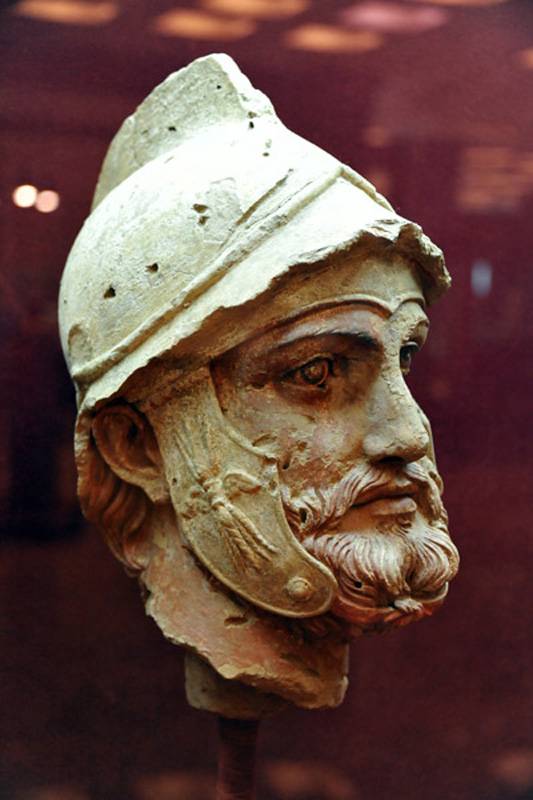
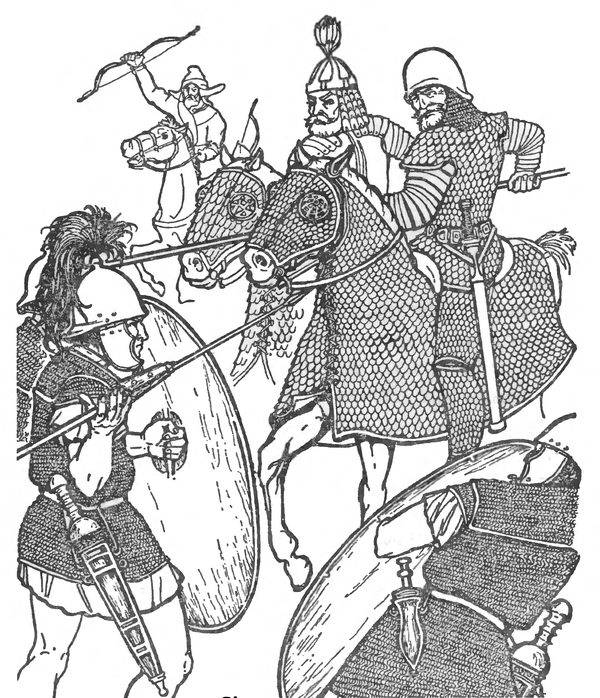
Unable to come to an agreement with Crassus, Artavazd entered into negotiations with the king Orod, who proposed marrying his son to the daughter of the Armenian king. Rome was far away, Parthia was near, and therefore Artavazd did not dare to refuse him.
And Crassus, relying on Artavazd, lost time: he was expecting the promised Armenian cavalry for the month of 2, and without waiting for her, he set off on a campaign not in the early spring, as planned, but in the hot season.
Just in a few passages from the border with Syria, there was the Parthian city of Carra (Harran), in which the Greek population prevailed, and from 54, the Roman garrison stood. At the beginning of June, the main forces of Mark Crass approached him, but, trying to find the enemy as quickly as possible, they moved further - into the desert. Around 40 km from Carr, by the River Ballis, Roman troops met with Surena’s army. Faced with the Parthians, the Romans did not “reinvent the wheel” and acted quite traditionally, one might even say, in a pattern: the legionaries lined up in a square in which the soldiers alternately replaced each other on the front line, allowing the “barbarians” to tire and exhaust themselves in constant attacks. Lightly armed warriors and cavalry were hiding in the center of the square. The flanks of the Roman army were commanded by the son of Crassus Publius and quaestor Guy Cassius Longin - the person who subsequently changes Pompey and Caesar in turn will become an ally of Brutus and will “substitute” him very much by committing suicide at the most inopportune moment - after the almost won Phillip battle. Yes, and with Crass he, in the end, will come out not very beautiful. In the Divine Comedy, Dante placed Cassius in the 9 circle of Hell - along with Brutus and Judas Iscariot, he is named there as the greatest traitor in stories humanity, all three are always tormented by the mouth of the three-headed beast - Satan.
So, a huge Roman square moved forward, showered with arrows of the Parthian archers - they did not cause much damage to the Romans, but among them appeared quite a lot of lightly wounded. Roman arrows from the center of the square answered the Parthians, not allowing them to come too close. Suren tried several times to attack the Roman system with heavy cavalry, and the first attack was accompanied by a truly impressive demonstration of Parthian power. Plutarch writes:
But the Roman square resisted - the catapractic could not break through it. Crassus, in turn, several times threw his cavalry units to the counterattack — also without much success. The situation was stalemate. The Parthians could not stop the movement of the Roman square, and the Romans slowly moved forward, but so they could go for a week without any benefit to themselves, and without the slightest harm to the Parthians.
And then Suren imitated the retreat of part of his forces on the flank, commanded by Publius. Deciding that the Parthians finally trembled, Crassus gave his son the order to attack the retreating forces of one legion, a detachment of Gallic cavalry and 500 archers. Clouds of dust raised by the hooves of horses prevented Crassus from observing what was happening, but since the onslaught of the Parthians weakened at that moment, he, already confident of the success of the maneuver, built his army on a nearby hill and calmly awaited reports of victory. It was this moment of the battle that became fatal and determined the defeat of the Romans: Mark Crass did not recognize Surena’s military cunning, and his son was too carried away by the pursuit of the Parthians retreating before him, he came to his senses only when his forces were surrounded by superior enemy forces. Suren did not throw his warriors into battle with the Romans - by his order, they were methodically shot with bows.
Here is how Plutarch talks about this episode:
Publius still managed to lead a desperate attempt of the Gauls to break through to the main forces, but they could not resist against cataphracts.
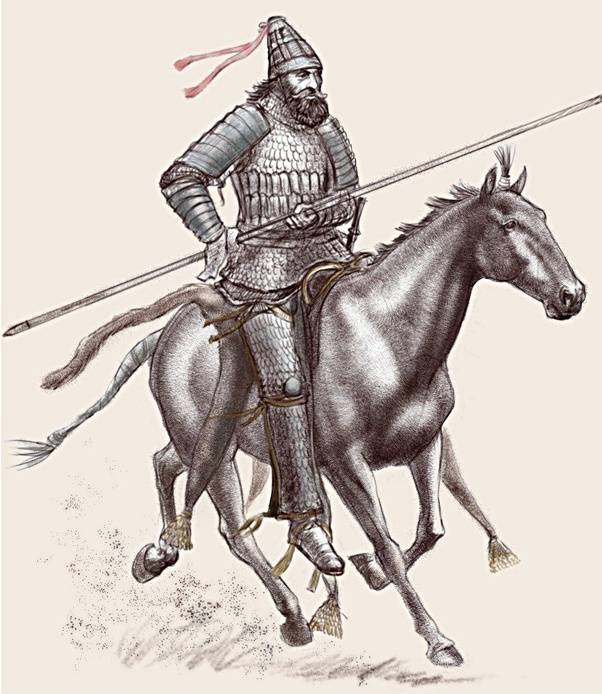
Having lost almost all the horses, the Gauls retreated, Publius was seriously wounded, the remnants of his unit, moving away to the nearby hill, continued to die from the Parthian arrows. In this situation, Publius, "not having a hand that the arrow pierced, ordered the squire to strike him with a sword and put a side to him" (Plutarch). Many Roman officers followed suit. The fate of ordinary soldiers was sad:
The head of Publius, impaled on a spear, was taken before the Roman formation. Seeing her, Crassus shouted to his soldiers: “This is not yours, but my loss!”, But it was clear to everyone that Publius could die only with his squad, and the spectacle made a very heavy impression on the army. Seeing this, the “ally and friend of the Roman People”, King Abgar, went over to the Parthians, who in the meantime, seizing the Roman system in a semicircle, resumed shelling, occasionally throwing cataphracts into the attack. As we remember, Crassus before this positioned his army on the hill, and this was his next mistake: out of the blue the soldiers of the first rows blocked their comrades in the back rows from the arrows, while on the hill almost all the rows of the Romans were open to shelling. But the Romans held out until the evening, when the Parthians finally stopped their attacks, notifying Crass that they "would grant him one night to mourn their son."
Suren took his army, leaving the morally broken Romans to dress up the wounded and count the losses. But, nevertheless, speaking of the results of this day, the defeat of the Romans cannot be called devastating, and the losses - incredibly heavy and unacceptable. The army of Crassus did not run, was completely controlled and, as before, outnumbered the Parthians. Having lost a significant part of the cavalry, one could hardly expect further progress, but it was quite possible to retreat in an organized manner - after all, the city of Carra with the Roman garrison was located in 40 km, and then there was a well-known road to Syria, from where one could wait for reinforcements. However, Crassus, who was keeping well all that day, fell into apathy at night and in fact was eliminated from command. Questor Cassius and Legate Octavius, on their own initiative, convened a military council, at which it was decided to retreat to Carr. At the same time, the Romans left to the mercy of fate about 4 thousands of wounded who could interfere with their movement - they were all killed by the Parthians the next day. In addition, the cohorts of the legate Varguntius were surrounded and destroyed by 4. The fear of the Romans before the Parthians was already so great that, having reached the city safely, they did not move further from it - to Syria, but remained in the ghostly hope of receiving help from Artavazd and retreat with him through the mountains of Armenia. Suren invited the Roman soldiers to go home, issuing him his officers, first of all - Crassus and Cassius. This proposal was rejected, but the trust between the warriors and the commanders could no longer be remembered. In the end, the officers convinced Crassus to leave Carr - but not openly, in a ready-to-fight formation, and at night, in secret, and the completely fallen commander, allowed himself to be persuaded. Everyone in our country knows that "normal heroes always go around." Following this popular wisdom, Crassus decided to go to the northeast through Armenia, while trying to choose the worst roads, hoping that the Parthians would not be able to use their cavalry on them. Beginner traitor Cassius, meanwhile, was completely out of control, and as a result, with 500 riders, he returned to Carres, and from there he returned safely to Syria — the same way that the entire Krass army had recently entered. Another high-ranking officer of Crassus, Legate Octavius, still remained loyal to his commander, and once even saved him, already surrounded by Parthians from shameful captivity. While experiencing great hardships on the chosen path, the remnants of the Crassian army still slowly moved forward. Suren, having released part of the prisoners, again offered to discuss the terms of a truce and free access to Syria. But Syria was already close, and Crassus had already seen the end of this sad path before him. Therefore, he refused to negotiate, but here the nerves of the rank-and-file warriors who were in constant tension, who, according to Plutarch, could not stand it:
As a result, Crassus was forced to go to the negotiations, in which he and the legate Octavius were killed. Tradition claims that the Parthians executed Crassus, pouring molten gold into his throat, which, of course, is unlikely. Crassus’s head was delivered to King Orod on the day of his son's marriage to his daughter Artabazda. A specially invited Greek troupe gave the tragedy of Euripides the “Bacchae” and the fake head that was to be used in the course of the action was replaced by the head of the hapless triumvir.
Many soldiers of Crassus surrendered, according to the Parthian custom, they were sent to carry guard and garrison service to one of the outskirts of the empire - to Merv. After 18 years, during the siege of Shishi, the Chinese saw soldiers unfamiliar before: “more than a hundred infantrymen lined up on each side of the gate and built in the form of fish scales” (or “carp scales”). In this structure, the famous Roman "turtle" is easily recognized: the warriors hide themselves with shields from all sides and above. The Chinese fired at them from crossbows, inflicting heavy losses, and then finally smashed them with an attack of heavy cavalry. After the fall of the fortress, over a thousand of these strange soldiers were captured and divided between the 15 rulers of the western border areas. And in 2010, the British newspaper The Daily Telegraph reported that in the north-west of China, near the border of the Gobi desert, there is the village of Litsian, whose inhabitants differ from their neighbors in blond hair, blue eyes and longer noses. Perhaps they are descendants of the very Roman soldiers who came to Mesopotamia with Crassus, were resettled in Sogdiana and were captured again, already by the Chinese.
Of those soldiers of Crassus who scattered around the neighborhood, most were killed, and only a few returned to Syria. The horrors they told about the Parthian army made a big impression in Rome. Since then, the expression “to launch the Parthian arrow” has come to mean an unexpected and harsh answer, capable of confusing and puzzling the interlocutor. The lost "Eagles" of the legions of Crassus were returned to Rome only under Octavian Augustus - in 19 BC, this was achieved not diplomatically, but by military means. In honor of this event, a temple was built and a coin minted. The slogan of "revenge for Crassus and his army" for many years was very popular in Rome, but the campaigns against the Parthians did not have much success, and the border between Rome and Parthia, and then between the New Persian kingdom and Byzantium remained unbreakable for several centuries.
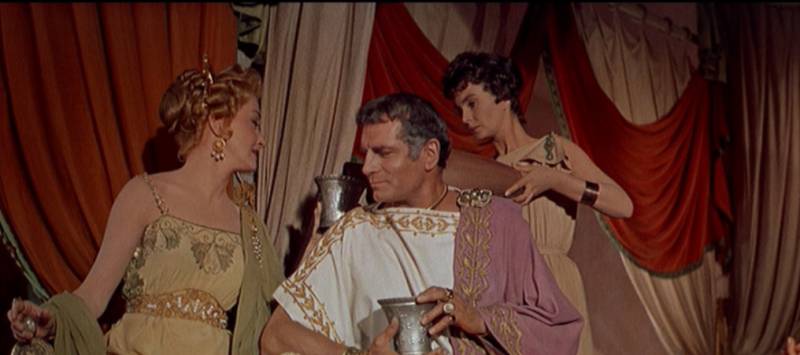
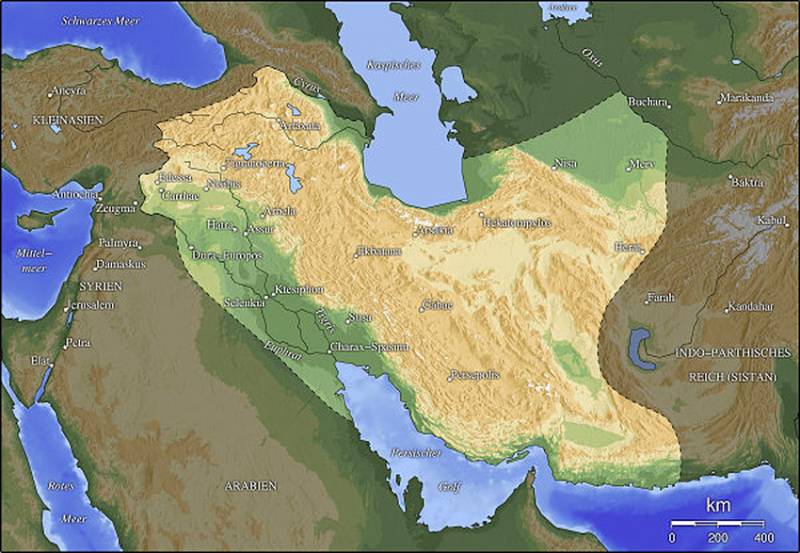
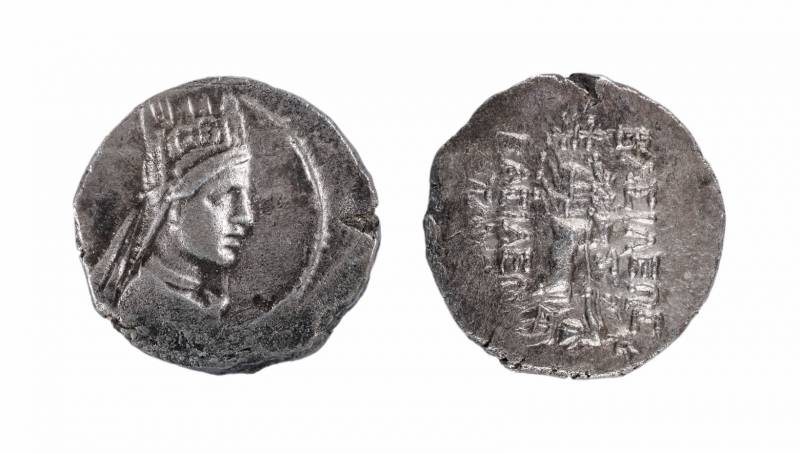
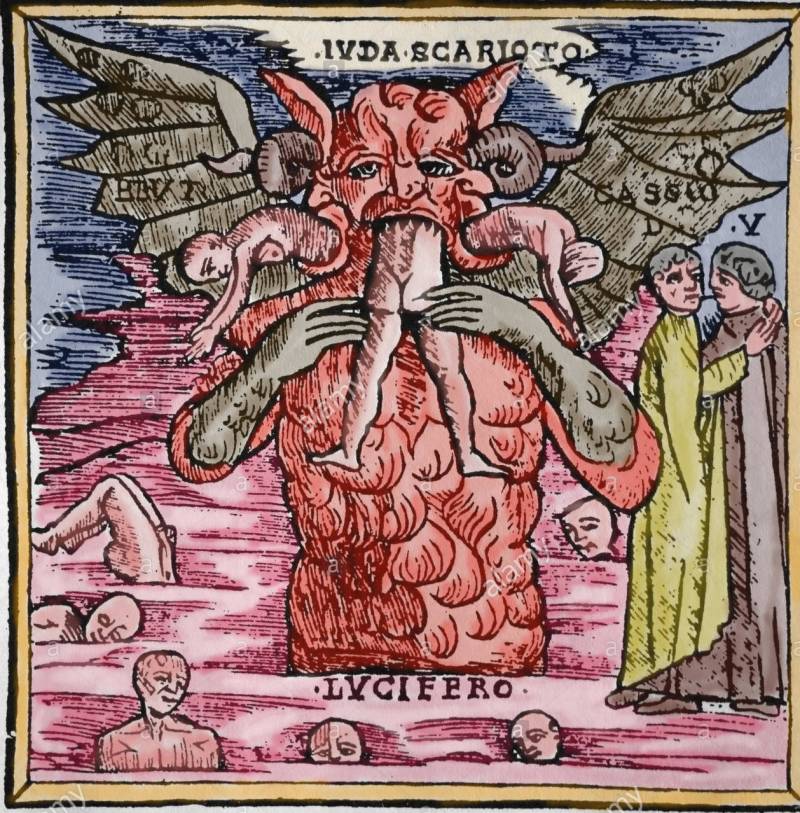
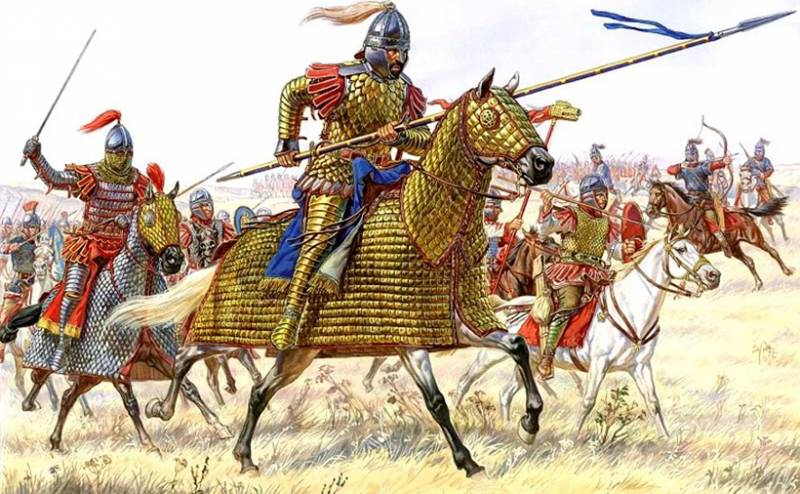
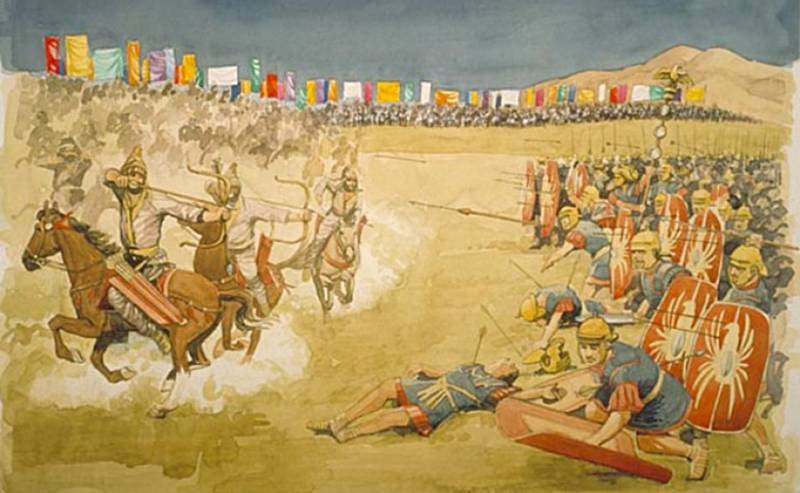
Information